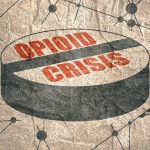A drug is a chemical substance that acts on the brain and nervous system, changing a person’s mood, emotion or state of consciousness. Drugs are often classified by the effect they have.
Stimulants, such as cocaine, make people feel full of energy. Depressants (or sedatives), such as heroin, make people feel relaxed. Hallucinogens, such as LSD, make people see, feel or hear things that are not real. Drug or substance misuse is when a person regularly takes one or more drugs to change their mood, emotion or state of consciousness.
Cannabis use disorder associated with increased risk of both psychotic and nonpsychotic unipolar depression and bipolar disorder

Jack Wilson critiques a recent Danish longitudinal study published in JAMA Psychiatry, which suggests that cannabis use disorder is independently associated with bipolar disorder and unipolar depression.
[read the full story...]









